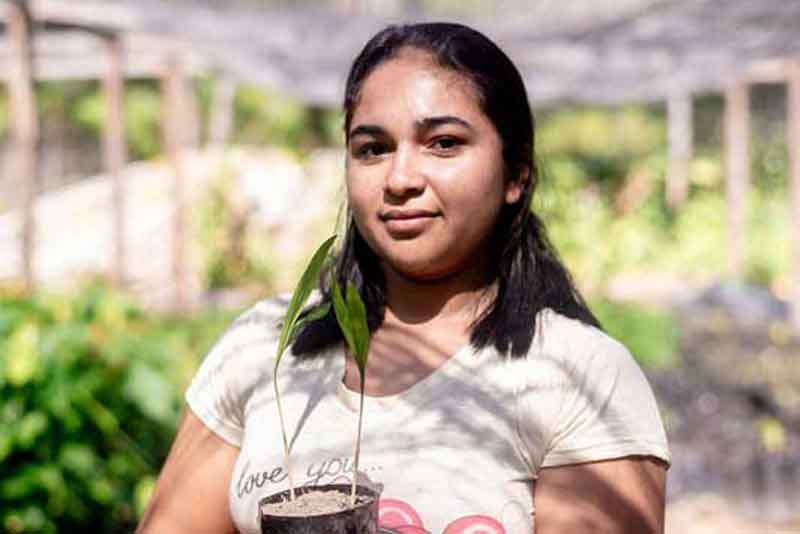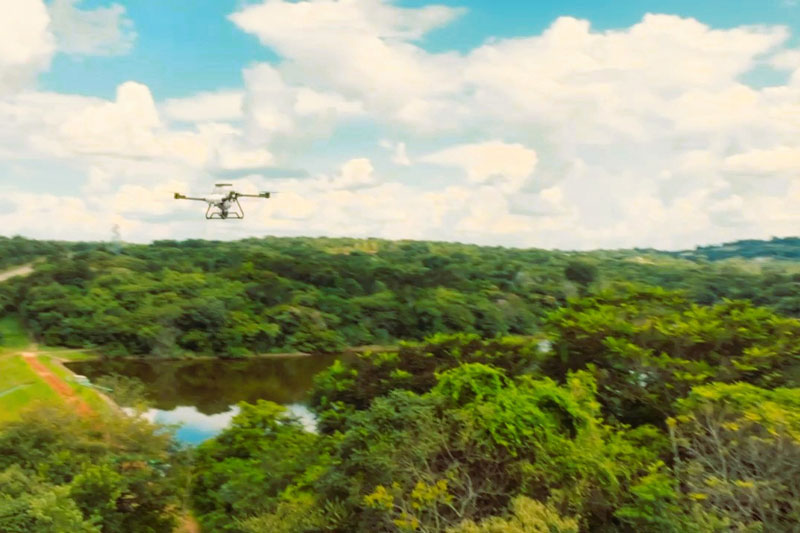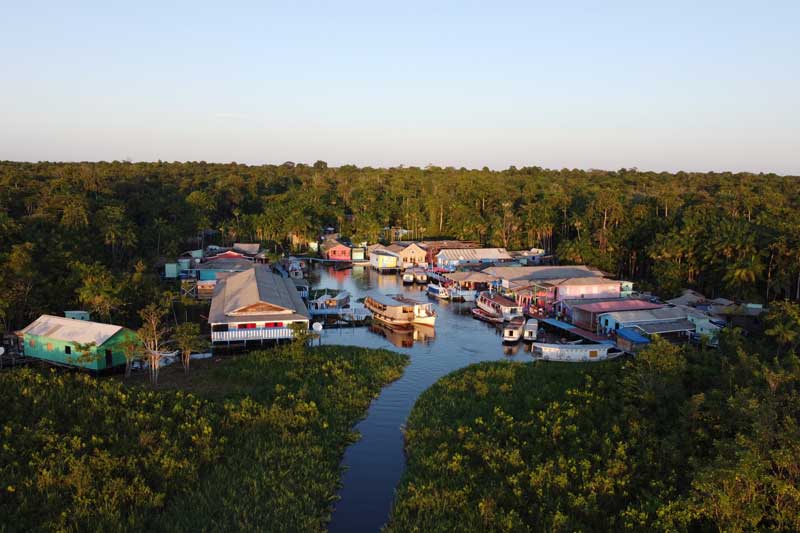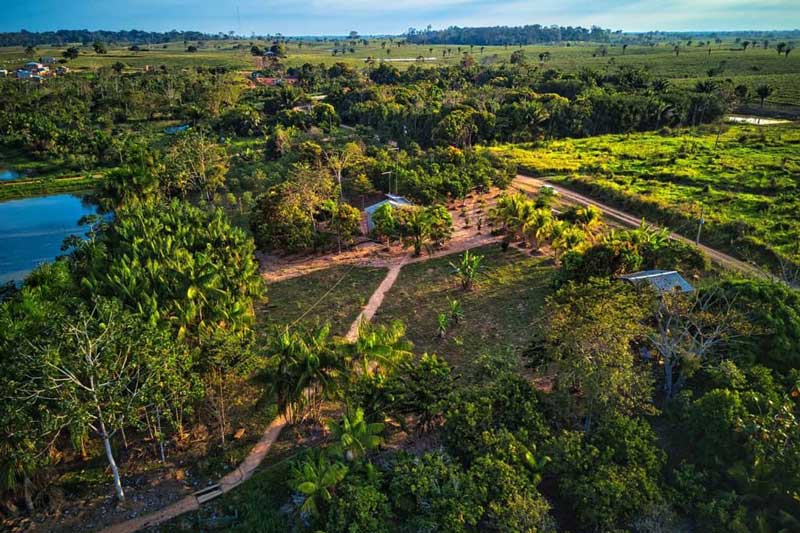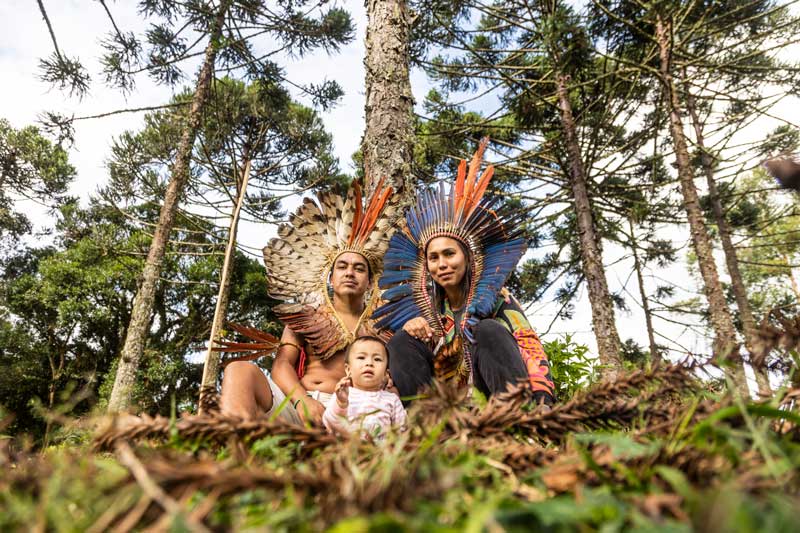With the launch of the PLANETA VERDE program, the Alok Institute seeks to contribute to reforestation, restoration, and preservation efforts across various ecosystems and biomes. The program also considers local populations’ quality of life, empowerment, and leadership, always aiming to include income generation whenever possible.
In Pará, the PLANETA VERDE program has partnered with IEB – International Institute of Education of Brazil and organizations and families from Ilha do Marajó through the Marajó – Agroforestry in Family project. This initiative has led to a 75% increase in the income of 150 women who planted 240,000 seedlings as part of a project that will restore approximately 200 hectares (around 200 football fields, or 2 million square meters). The majority of these women are agro-extractivists and riverside dwellers.
The project takes place in the municipalities of Breves, Curralinho, Melgaço, Muaná, Portel, and São Sebastião da Boa Vista, an area known for high deforestation rates and one of the lowest Human Development Indexes (HDI) in the country.
The project uses the Agroforestry System (SAF) methodology, which allows for the cultivation of trees (such as Andiroba, Jatobá, and Pracaxi), palms (such as açaí and pupunha), as well as long and short-cycle agricultural/fruit species (such as cacao, cupuaçu, pineapple, cassava, papaya, and banana) all within the same area. This diversity ensures the recovery of ecosystem services while generating income for families in the short, medium, and long term. SAF is an essential strategy for food security and sovereignty for local families.
According to Manuel Amaral, Executive Coordinator of IEB, “The partnership with the Alok Institute and the Airbnb Community Fund is strategic because it drives productive restoration in an area that plays a critical role in protecting the Amazon ecosystem and has been under significant pressure from deforestation. Establishing nurseries and SAFs fosters family engagement in the territory, boosting a local economy based on agroforestry and the diversification of production and income. It also contributes to the food sovereignty and security of the region’s residents.“
Learn more:
IIEB – International Institute of Education of Brazil
Founded in 1998, IIEB aims to provide training, promote education, generate and disseminate knowledge, and bring together stakeholders to build a sustainable society. Its natural resource conservation efforts integrate various dimensions of sustainability, covering economic, social, and cultural aspects while strengthening social actors and their leadership.
Support you too:


